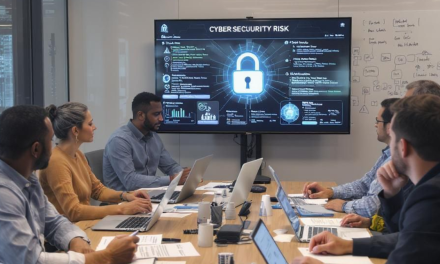During periods of economic uncertainty — whether caused by tariffs, geopolitical events, or other market disruptions — the risk of fraud typically increases, as is common in any volatile financial environment.
Malicious actors may look for ways to exploit the situation across several key areas, such as online shopping frauds that entice consumers with pre-tariff discounts, or investment scams promising high returns based on supposed insider tariff-related knowledge.
First, online shopping fraud is likely to rise as scammers take advantage of increased demand for goods expected to become more expensive.
They may set up convincing fake websites or send sophisticated scam emails promoting “pre-tariff discounts.” Consumers rushing to lock in lower prices could unknowingly provide financial information to fraudulent operators, leading to financial loss or identity theft.
Second, supply chain disruptions may force businesses and consumers to find alternative suppliers quickly, often with less rigorous vetting processes. This creates opportunities for counterfeit products to enter the market, including instances where cybercriminals embed malware in fake devices.
This concern was recently highlighted by Kaspersky’s discovery of an advanced variant of the Triada Trojan preinstalled on counterfeit Android smartphones sold through unauthorized retailers.
Operating at the firmware level, this malware grants attackers full control of the device, enabling cryptocurrency theft, hijacking of social media accounts, and unauthorized call redirection—underscoring the serious risks posed by compromised supply chains.
Third, market volatility opens the door to investment scams. Fraudsters may impersonate legitimate financial institutions, promise “guaranteed” high returns based on supposed insider tariff-related knowledge, or launch phishing campaigns and fake websites to steal sensitive information.
For example, an unverified social media post about a potential tariff pause recently triggered a temporary multi-trillion-dollar market surge before being debunked—demonstrating how quickly misinformation can spread and fuel potential pump-and-dump schemes.
To help mitigate these risks, consumers should verify the legitimacy of sellers before making purchases, use payment methods that offer fraud protection, and remain cautious of deals that seem too good to be true. Investors should conduct thorough due diligence, rely on reputable sources of information, and be skeptical of unsolicited offers that promise outsized returns.
As the economic landscape continues to shift, heightened vigilance will be essential. Understanding these threats can help both consumers and investors stay better protected.
To further reduce exposure to scams and malicious websites, consider using a trusted cybersecurity solution like Kaspersky Premium. In addition to detecting phishing attempts and blocking suspicious downloads, it provides real-time protection for online shopping and financial transactions—helping users identify spoofed websites before entering any sensitive information.
By pairing proactive security tools with a cautious, informed approach, consumers and investors can navigate periods of economic volatility more confidently and remain resilient against emerging threats.

















